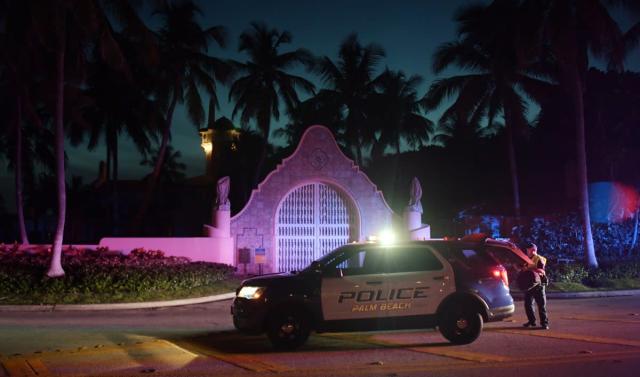What Does The FBI’s Raid on Trumps Mar-a-Lago Property Mean for Him?


Palm Beach police stand outside Trump’s Mar-a-Lago residence as the FBI prepares to search for documents.
by Declan Rooney ‘25
Q: Why did the FBI raid Mar-a-Lago?
A: The FBI raided Mar-a-Lago because former President Trump may have violated the Espionage Act by moving classified documents from the White House to his private residence.
Q: What is the Espionage Act?
A: The Espionage Act of 1917 was part of the National Government’s effort to contain criticism of the war effort during World War I. The law prevents anybody from “gathering, transmitting, or losing of national defense information” in section 793, which is what the Department of Justice (DOJ) claims Trump violated.
Q: What was in the documents the FBI was looking for?
A: In the search warrant, the DOJ instructs the FBI to look for documents pertaining to, “communications, in any form, regarding the retrieval, storage, or transmission of national defense information or classified material” and “any evidence of the knowing alteration, destruction, or concealment of any government and/or Presidential Records.” Specifically, it has been confirmed that some of these documents were about the nuclear capabilities of another country.
Q: What was in the documents the FBI was looking for?
A: In the search warrant, the DOJ instructs the FBI to look for documents pertaining to, “communications, in any form, regarding the retrieval, storage, or transmission of national defense information or classified material” and “any evidence of the knowing alteration, destruction, or concealment of any government and/or Presidential Records.” Specifically, it has been confirmed that some of these documents were about the nuclear capabilities of another country.
Q: What is a Special Master and why did Trump’s defense request one?
A: A Special Master is an official appointed by a Judge to make sure judicial orders are followed or, in this case, to review evidence and make recommendations to the judge as to the disposition of the matter. Trump requested a special master.
Q: What did the FBI actually find in Mar-a-Lago?
A: The FBI searched the entirety of Trump’s mansion including his private safe. They found boxes of both personal documents and dozens of empty folders marked classified. On top of this they found 42 empty folders marked “Return to Staff Secretary/Military [sic] Aide.” Only Trump knows where the contents of these folders are.
Q: What could happen if Trump is found guilty?
A: The Espionage Act states that “To convey information with the intent to interfere with the operation or success of the armed forces of the United States or to promote its enemies’ success. This was punishable by death or imprisonment for not more than 30 years or both.” That being said, most legal experts estimate that Trump would receive 10 or fewer years in prison if found guilty.